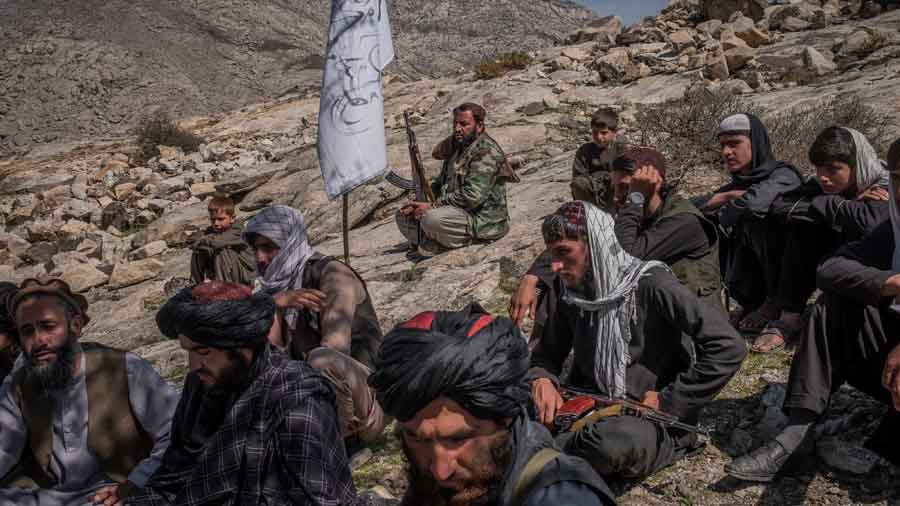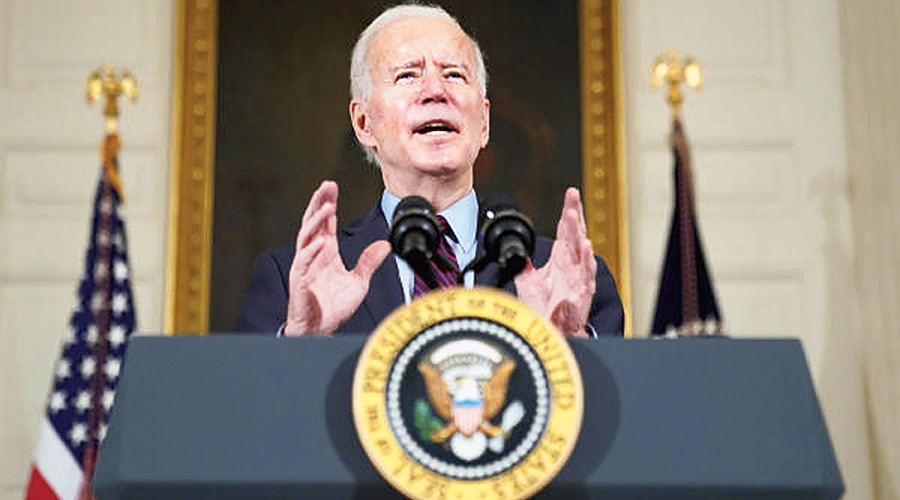India on Tuesday officially had its first contact with the Taliban after the Afghanistan takeover when a senior leader of the group met the Indian ambassador to Qatar at the embassy in Doha.
“Today, ambassador of India to Qatar, Deepak Mittal, met Sher Mohammad Abbas Stanekzai, the head of the Taliban’s political office in Doha. The meeting took place at the embassy of India, Doha, on the request of the Taliban side,” the Indian external affairs ministry said in a media release.
Although India had purportedly opened channels of communication with the Taliban in the run-up to the US withdrawal from Afghanistan, this is the first time New Delhi is acknowledging contact with the militant outfit that now rules the trouble-torn country.
Before this, India had acknowledged any communication with the Taliban only once — during the Kandahar hijack crisis in 1999.
Now, the official contact in Doha has taken place even before the Taliban regime has been recognised as the legitimate government of Afghanistan. As for diplomatic recognition of the Taliban, India remained silent, waiting like most other countries for the situation to stabilise in Afghanistan and see how the group reconciles differences within.
The Doha meeting came hours after the last US soldier left Afghanistan, making it the first day the Taliban is officially in charge of the country although no government is technically in place yet.
India said the conversation between the envoy and the Taliban official focussed on the safety, security and early return of Indian nationals stranded in Afghanistan.
The travel of Afghan nationals, especially the minorities there, who wish to visit India also came up, according to the release.
Mittal iterated India’s concern that Afghanistan’s soil should not be used for anti-India activities and terrorism in any manner.
The release said the Taliban representative assured the ambassador that these issues would be positively addressed.
The Taliban has had a political office in Doha since 2013. Soon after a comprehensive peace agreement was signed between the US and the Taliban in Doha in February 2020, Mittal — who had been the joint secretary, Pakistan, Afghanistan and Iran, in the external affairs ministry, was sent to the Qatari capital to head India’s mission there.
That the first official contact with the Taliban took place in the Doha embassy with Mittal running point suggests this is work in progress.
Stanekzai, too, has an old relationship with India, having passed out of the Indian Military Academy in Dehradun. Last week, he had extended an olive branch to India, claiming that the Taliban wanted to maintain political, economic and cultural ties with the country and keep the air corridor active, as also the overland trade via Pakistan.
Stanekzai told CNN-News 18 on Monday that the Taliban wanted to have friendly relations with all its neighbours and even the US.
On the apprehension in New Delhi that the Taliban may team up with Pakistan against India, he said the two countries shared a long border and should settle their scores there.
“We will not allow any of these two countries to use Afghanistan.… We will not allow anyone to use Afghan soil against any country,” Stanekzai said, articulating the hope that Afghan Hindus and Sikhs who had left Afghanistan after the Taliban assumed control would return and India would remain invested in Afghanistan.
The only other time India has acknowledged any form of contact with the Taliban was in December 1999 for the release of the hijacked Indian Airlines flight that had been taken to Kandahar. India never recognised the Taliban when it was in power in Afghanistan between 1996 and 2001.
But the investments that successive governments in New Delhi have made in the strife-wracked country over the past two decades have made it necessary for India to rethink its policy of not dealing with the Taliban, particularly in the face of the growing footprint of both China and Pakistan in Afghanistan.
UN resolution
The United Nations Security Council on Monday adopted a resolution demanding that Afghan territory not be used to threaten or attack any country, shelter or train terrorists and plan or finance terrorist attacks. The UNSC iterated the importance of combating terrorism in Afghanistan, including those individuals and entities designated in Resolution 1267.
Both the Lashkar-e-Toiba and the Jaish-e-Mohammad are UN-banned organisations under UNSC Resolution 1267. Russia and China abstained but were one with the other countries in underlining the importance of ensuring that Afghanistan does not become a safe haven for terrorists.












